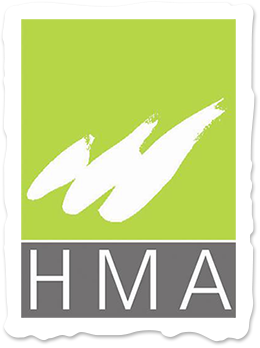Ethical Practice and Motivational Interviewing in Family Violence Work
Ethical Practice and Motivational Interviewing in Family Violence Work
Let’s talk about something vital in our work with men who use domestic, family, and sexualised violence—Motivational Interviewing (MI). This powerful approach helps people find their own reasons for change. But here’s the catch: MI isn’t magic. It’s deeply rooted in ethics, and without that ethical foundation, it risks becoming just another tool for compliance rather than genuine transformation.
At the core of MI is respect for autonomy. Why is this so crucial? Because the men we support often already feel cornered by court orders, mandated programs, or system interventions. Our role isn’t to persuade or pressure; it’s to create a space where they can listen to themselves and deeply consider the impacts of their actions. When MI is used effectively, it draws out genuine, internal motivations for change rather than imposing them from the outside.
But here’s where we need to be really careful. If we start using MI merely to “secure buy-in” or tick compliance boxes, we risk slipping into manipulation—and that’s exactly what ethical MI practice stands against. Our work is about walking alongside, offering reflections (these can be challenging), gently exploring how abusive practice conflicts with the man’s values, and genuinely supporting them to see the broader ripple effects of their behaviours on their partners, children, and whānau.
This becomes even more crucial in contexts such as corrections, child protection, or mandated programmes, where power dynamics are especially pronounced. Ethical MI in these settings means being transparent, clear, and culturally humble. It means establishing boundaries openly, ensuring informed consent, and creating a relational space that maintains dignity and mana.
Yes, ambivalence and minimisation are familiar territories in this mahi/work. MI helps us navigate these tricky waters without judgment or confrontation, guiding men from justification towards deeper reflection and accountability. It’s not about quick fixes; it’s about creating a consistent, respectful space that nurtures genuine growth and change.
Ultimately, ethical MI practice isn’t just about having great skills—it’s about making a committed choice. A commitment to trauma-informed, culturally grounded ways of working. A commitment to uphold dignity. And a commitment to change that heals not just individuals, but entire whānau and communities.
Let’s keep this conversation going. Let’s commit to ethical, mana-enhancing MI practices together. Because when done right, MI doesn’t just change behaviours—it changes lives. Are you ready to deepen your ethical practice and make a difference? Let’s start this journey together.
Published on Monday, June 9th, 2025, under UncategorisedComments are closed.
Sign up for our newsletter!
Recent Posts
- Ake – Expanding Access and Possibility
- From Resistance to Reflection: Using MI to Explore Ambivalence in DFSV Work
- Trying something new: a co-response model
- A Return to Where It All Began: Reflections on AOD Use and Family Violence
- Ethical Practice and Motivational Interviewing in Family Violence Work
Categories
- Announcements
- Family violence
- Learning & development
- Motivational Interviewing
- Offender work
- Practice tips and techniques
- Programme design & development
- Uncategorised
- What Ken thinks
- Youth offending
Archives
- October 2025
- September 2025
- August 2025
- July 2025
- June 2025
- May 2025
- March 2025
- February 2025
- December 2024
- November 2024
- October 2024
- September 2024
- July 2024
- June 2024
- May 2024
- April 2024
- March 2024
- February 2024
- November 2023
- October 2023
- September 2023
- July 2023
- June 2023
- May 2023
- April 2023
- March 2023
- January 2023
- December 2022
- November 2022
- October 2022
- September 2022
- August 2022
- July 2022
- June 2022
- May 2022
- April 2022
- March 2022
- December 2021
- January 2020
- April 2019
- March 2019
- January 2019
- December 2018
- June 2018
- June 2017
- April 2017
- March 2017
- February 2017
- January 2017
- September 2016
- July 2016
- March 2016
- February 2016
- January 2016
- October 2015
- July 2015
- May 2015
- April 2015
- March 2015
- November 2014
- October 2014
- September 2014
- July 2014
- June 2014
- January 2014
- November 2013
- September 2013
- July 2013
- May 2013
- March 2013
- February 2013
- January 2013
- December 2012
- November 2012
- October 2012
- September 2012
- August 2012
- July 2012
- June 2012
- May 2012
- April 2012
- March 2012
- February 2012
- January 2012
- November 2011
- October 2011
- September 2011
- July 2011
- June 2011
- April 2011
- February 2011
- December 2010
- November 2010
- October 2010
- September 2010
- July 2010
- May 2010
- April 2010
- February 2010
- January 2010
- November 2009
- October 2009
- September 2009
- July 2009
- July 2008
